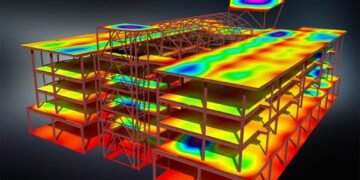The future of civil engineering is unfolding like a thrilling, multi-faceted narrative, brimming with promise and potential. As the industry surges forward, driven by a whirlwind of emerging technologies and cutting-edge methodologies, the landscape of the built environment is on the brink of a revolution. Sustainability, the development of smart cities, and the creation of resilient infrastructures aren’t just buzzwords—they are the bedrock upon which the cities of tomorrow will be built. Civil engineers will be the master architects of this transformation, wielding innovation as their tool to shape a world that balances progress with ecological harmony.
At the very core of this evolution lies the urgent call to combat climate change. The stakes couldn’t be higher: extreme weather, rising seas, and a planet teetering on the edge of environmental collapse. Yet, civil engineers, ever the problem-solvers, are stepping up with creative solutions that promise to rewrite the rules. They’ll design buildings that breathe with the earth, infrastructures that hum with efficiency, and systems that actively reduce carbon footprints. Their work will not merely react to the climate crisis—it will confront it head-on, creating spaces that are both eco-conscious and resilient, equipped to face the challenges of a warming world.
As the global population surges and environmental concerns intensify, the need for skilled civil engineers will skyrocket. This isn’t just a profession—it’s a calling to future-proof the world. The field will evolve into a fascinating blend of tradition and innovation, merging time-tested engineering practices with the latest in smart technology, sustainability, and adaptive design. Civil engineers will not just create structures; they will craft the very infrastructure of tomorrow—one that ensures a sustainable future, a thriving planet, and resilient communities in the face of an ever-changing world.














